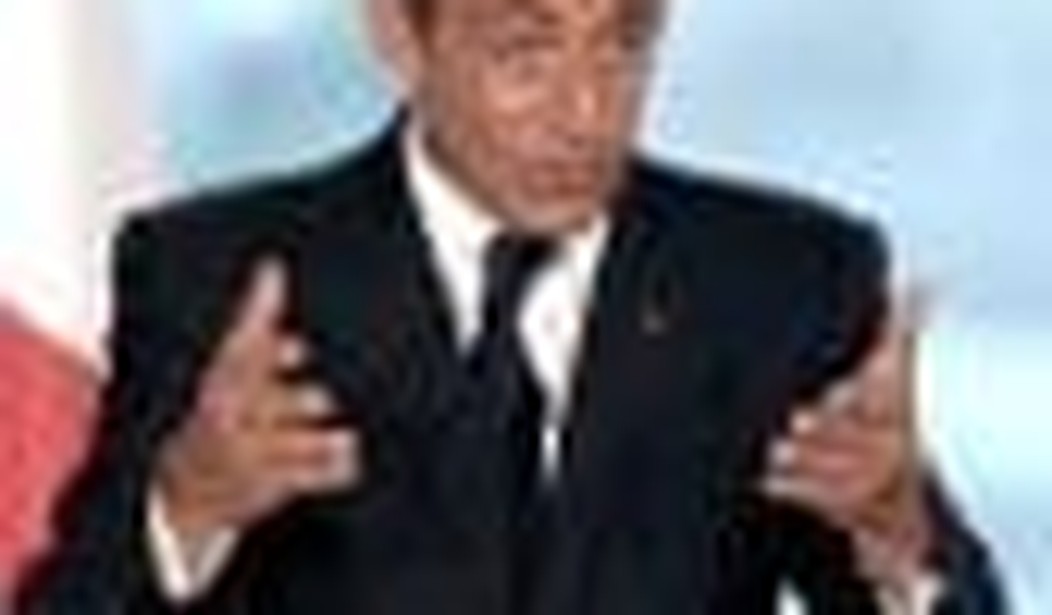On June 13, 2008, the EU made a new offer of incentives to Iran as part of its proposal to resolve the current nuclear crisis. According to the latest news, Iran has rejected calls for the suspension of uranium enrichment, which was one of the underlying parts of the offer.
This is a serious setback for the international community and for those who want a negotiated settlement to this crisis. It is time for senior foreign statesmen to get involved directly in diplomatic efforts in order to avert what could be a serious crisis, if not a military confrontation.
With four months to go before the U.S. elections, the Americans cannot be expected to do this job yet, as we are not sure who will be the president and if he will be willing to talk to Iran. If anything, it could be too late by then. The only foreign statesman who currently has the seniority and the credibility in the Middle East to do this job is France’s president, Nicholas Sarkozy.
Sarkozy’s recent trips to North Africa, Lebanon, and Israel and his upcoming trip to Syria have not only given him much credibility; they have also raised his profile in Tehran, both good and bad. For hardliners such as Ahmadinejad, Sarkozy is a friend of Bush who wants to weaken Iran. For moderate conservatives such as Ali Akbar Velayati — Iran’s longest-serving post-revolution foreign minister, serving from 1981 to 1997, and current advisor to the supreme leader — Sarkozy could be Iran’s only hope of averting total isolation and possibly war.
In fact, Velayati saw Sarkozy as Iran’s only hope in the EU as far back as November 2007. Back then, Iran was under pressure from Gordon Brown and Angela Merkel, both of whom Ahmadinejad views as its staunch nemeses due to their calls for increased sanctions against Iran. Sarkozy, on the other hand, tried to reach out to Supreme Leader Khamenei and wanted to prepare a meeting with him. Velayati jumped at the chance.
As Khamenei’s advisor on foreign policy issues, he was to be dispatched to Paris to prepare the ground for the visit. However, as president, Ahmadinejad needed to be informed about this. Instead of working with Velayati, Ahmadinejad first tried to embarrass him by giving him an appointment at midnight, for which Velayati had to wait several more hours because Ahmadinejad was late. Ahmadinejad then went on to torpedo Velayati’s efforts by writing a letter to Sarkozy, in which he called him “young and inexperienced.” Not only was this letter insulting; it was also hypocritical. Ahmadinejad himself is a year younger than Sarkozy. He also has far less experience in domestic and international politics. Nevertheless, Ahmadinejad won as Sarkozy shelved plans to visit Iran.
Since then, Iran has become even more isolated in the international community. The recent offer by the EU was seen by many moderate conservatives and pragmatists as a chance to reach out to the West, to avoid isolation, and to reduce Ahmadinejad’s influence. So Velayati decided to take the initiative.
In a letter written to the French newspaper Libération on July 2, he publicly sidelined Ahmadinejad’s position by stating that all major decisions in Iran are taken by the supreme leader. In other words, despite his tough words, Ahmadinejad does not have too much power. In the letter he also extended an invitation to Sarkozy by stating that “by receiving the dignitaries and leaders of numerous states and by communicating with them, the supreme leader has given undeniable examples of his crucial presence in Iranian diplomacy.”
President Sarkozy should take the initiative and try again to go to Iran. He may not be able to resolve the crisis immediately. However, at bare minimum, his visit could be a blow to Ahmadinejad. With one year to go before Iranian elections, the West should do what it can to weaken the hands of isolationist right-wingers in Iran. A visit by President Sarkozy to Tehran and direct meetings with Supreme Leader Khamenei could be one way. A powerful way.








Join the conversation as a VIP Member